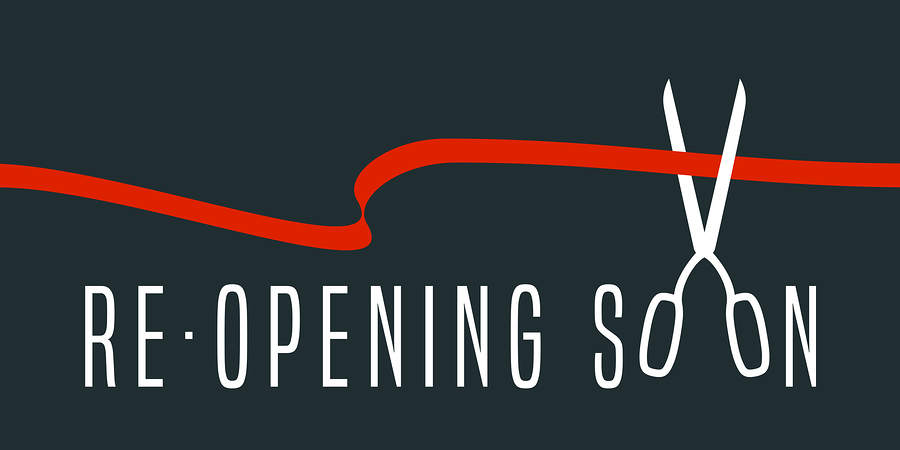Bill is known as “a consummate developer of strategic relationships“. He is an Accredited Business Intermediary, veteran broadcast executive, public relations consultant and historian.

The Importance of Owner Flexibility

You shouldn’t expect to sell your company overnight. For every company that sells quickly, there are a hundred that take many months or even years to sell. Having the correct mindset and understanding of what you must do ahead of time to prepare for the sale of your company will help you avoid a range of headaches and dramatically increase your overall chances of success.
First, and arguably most importantly, you must have the right frame of mind. Flexibility is a key attribute for any business owner looking to sell his or her business. There are many variables involved in selling a business, and that means much can go wrong. An inflexible owner can even irritate prospective buyers and inadvertently sabotage what could have otherwise been a workable deal.
Be Flexible on Price
A key part of being flexible is to be ready and willing to accept a lower price. There are many reasons why business owners may fail to achieve the price they want for their business. These factors range from lack of management depth and lack of geographical distribution to an overreliance on a handful of customers or key clients. Of course, one way to address this problem is to work with a business broker or M&A advisor in advance, so that such price issues are minimized or eliminated altogether.
Be Prepared to Compromise
In the process of selling your business, you may want to achieve confidentiality and sell your business quickly and for the price you want. However, the fact is that most sellers find that it is possible to have confidentiality, speed, and the price you want, but not all three. Ultimately, you’ll have to pick two of the three variables that are most important to you.
Be Patient
A third way in which business owner flexibility can boost the chances of success is to embrace the virtue of patience. By accepting the fact that businesses can “sit on the shelf” for a considerable period of time, you are shifting your expectations. This realization can help reduce your stress level. The fact is that stressed out owners are far more likely to make mistakes.
Sometimes Losing is Really Winning
A fourth way in which business owners should be flexible is realizing that you and your lawyer will not win every single fight. There will be many points of contention, and a smart dealmaker realizes that it is often better to have a good deal than a perfect deal. You may have to make sacrifices in order to sell your company. Simply stated, you shouldn’t expect the other side to lose every point.
At the end of the day, a savvy business owner is one that never loses sight of the final goal. Your goal is to sell your business. Seeing the situation from the buyer’s perspective will help you make better decisions on how you present your business and interact with prospective buyers. Maintaining a flexible attitude with prospective buyers helps to position you as a reasonable person who wants to make a deal. Goodwill can go a long way when obstacles do arise.
Copyright: Business Brokerage Press, Inc.
The post The Importance of Owner Flexibility appeared first on Deal Studio – Automate, accelerate and elevate your deal making.

The Main Street Lending Program

There is no doubt that the COVID-19 situation seems to change with each and every day. The disruption and chaos that the pandemic has injected into both daily life and business is obvious. Just as it is often difficult to keep track of the ebbs and flows of the pandemic, the same can be stated for keeping up to speed on the government’s response and what options exist to assist companies of all sizes.
In this article, we’ll turn our attention to an overlooked area of the government’s pandemic response and how businesses can use a whole new lending platform to navigate the choppy waters.
As the pandemic continues, you will want to be aware of the main street lending program, which is a whole new lending platform. It was designed for businesses that were financially sound prior to the pandemic. Authorized under the CARE Act, the main street lending program is quite attractive for an array of reasons. Let’s take a closer look at what makes this program almost too good to be true.
This lender delivered program is a commercial loan. Unlike the PPP, there is no forgivable component. However, the main street lending program does have one remarkable feature that will certainly grab the attention of all kinds of businesses. It can be used to refinance existing debt at a rate of around 3%. With that stated, it is also important to note that businesses cannot refinance existing debt with the current lender. Instead, a new lender must be found. Generally, loans are a minimum of a quarter million dollars and have a five-year term. In another piece of good news, there is a two-year payment deferment period.
The main street lending program can be used in a variety of ways. In short, the program is not simply for refinancing existing debt. Additionally, there is no penalty for prepayment. The way the program works is that lenders make the loans and then sell 95% of the loan value to the Fed. This of course means that the lender is only required to retain 5% of the loan on their balance sheet. The end result is that lenders can dramatically expand the amount of loans they can make.
Whether it is the PPP or a program like the main street lending program, there are solid options available to help you. Businesses looking to restructure debt or put an infusion of cash to good use may find that the main street lending program offers a very flexible loan with great interest rates.
Copyright: Business Brokerage Press, Inc.
The post The Main Street Lending Program appeared first on Deal Studio – Automate, accelerate and elevate your deal making.

Why Does Your Business Need Google Reviews?

In today’s business climate, reviews are the differentiator. Years ago, people commonly asked for references when they were vetting a product or service. But these days when people are searching for a local business to work with, they are likely to conduct research on their own and read online reviews.
Google reviews can give businesses a big credibility boost without having to spend a dime. Let’s take a look at some of the key benefits.
Increased Credibility & Trust
According to statistics, approximately 91% of consumers read reviews to determine credibility of a local business. In fact, 84% of consumers say the positive reviews have helped them gain trust. Without the reviews, that level of trust would not have been established.
Needless to say, people trust Google. The fact that these reviews are on a 3rd party website increases transparency. These reviews have much higher value than testimonials posted on the actual business website.
Improved Business Conversions
Once a potential customer gains trust in your company through reading Google reviews, it is more likely the conversation will get converted to an actual business transaction.
Customer Feedback Loop
When your customers write reviews about your business and post them on Google, these reviews often clearly mention details about your product or service. Through this means, future customers become educated. These reviews can also serve as a feedback loop for you if things need improvement.
Increases Online Reputation & Visibility
The power of online marketing methods you might be using to promote your business will be amplified, as users will become more attracted to your business due to 5-star reviews. This factor increases online traffic to your website and an increase in leads and business.
Another fact to be conscious of is that your clients will review your products or services whether you want them to or not. If you fail to set up Google reviews, you’re missing out on the opportunity to gain a level of control and visibility.
How to Set Up Google Reviews
- Create a Google My Business account. – Visit https://business.google.com/ to sign in or create a Google account for a business. Complete the step by step process by filing required information like email, phone number, business details, etc.
- Ask clients to review your services. – Start sharing your Google My Business URL with clients and ask them to post a review about your services. When asking for reviews, you can mention to clients that their review will help everybody else make an informed decision when they are looking for help. It is important to ask about the review within a few days of closing your transaction. If more time goes by, the client may be less motivated to post a review for you.
- Remind clients. – Everybody is busy. Therefore, there is a chance that your client might forget to write a review. In this case, we recommend reminding them to do so. You can also politely inquire if they need any help posting the review that you discussed.
Through the above-mentioned process, you can begin generating reviews for your business. Of course, it goes without saying that you can only guarantee good reviews when you are providing excellent customer service along with a top-notch product or service.
Copyright: Business Brokerage Press, Inc.
The post Why Does Your Business Need Google Reviews? appeared first on Deal Studio – Automate, accelerate and elevate your deal making.

Getting Back to Business After the COVID-19 Pandemic

Historians have long known the historical relevance and impact of epidemics and pandemics. Despite our various technological advances and the complexity of our society, disease can instantly change the course of history. Not having a robust global system for dealing with disease and pandemics comes with a hefty price tag. In the case of the COVID-19 economic crisis, the price tag will no doubt be in the trillions.
You can’t control what has happened, but you can focus on what to do when the pandemic is over and life begins to slowly return to normal. In his recent article, “How to Hit the Ground Running After the Pandemic,” author Geoffrey James explores what businesses need to do to jumpstart their operations once the pandemic is in the history books.
James wants his readers to understand that the pandemic will end and that business owners need to be ready to charge back in when the pandemic is over and the economy rebounds. As James points out, if history is any indicator, the economy will eventually rebound.
Almost everything about this economic downturn is unique. Take, for example, the fact that the U.S. has just seen its largest-ever economic expansion. The gears and wheels of the economy were spinning along quite quickly before the pandemic hit. This could help restart the economy faster than in past severe economic downturns. In short, many experts feel that this particular economic downturn could be short, but of course, this is speculation. There is no way to know for sure until COVID-19 is in the rearview mirror.
James correctly asserts that businesses need to put together a plan for how they will get up and running as soon as the pandemic is over. His recommendation is to divide your plan and thinking into four distinct categories: Facilities, Personnel, Manufacturing, and Marketing.
Each of these categories has three key questions that business owners should be asking themselves so that their businesses are ready to hit the ground running when COVID-19 is over. Below are a few of the key questions James recommends asking.
- How can we create the most sanitary and disease-free workplace possible?
- Which employees will continue to work from home?
- When there’s a spike in demand, how will we ramp-up?
- What will be our “We’re Back!” marketing message?
The pandemic caught everyone except the experts off guard. Moving forward, business leaders, think tanks, and politicians alike need to work to develop and implement robust plans to minimize the damage caused by pandemics. Humanity, and business, has been “lucky” several times in recent years, as we dodged bullets ranging from Ebola to SARS.
As James points out in his article, “Failing to plan is planning to fail.” Businesses need to plan for the recovery and they need to plan for another pandemic because another one is quite possible especially if better planning and decision making are not firmly entrenched in place.
Copyright: Business Brokerage Press, Inc.
The post Getting Back to Business After the COVID-19 Pandemic appeared first on Deal Studio – Automate, accelerate and elevate your deal making.

COVID-19 Advice for Hospitality Businesses

Clearly, some industries are taking a bigger hit from COVID-19 than others. Any industry that requires a great deal of interaction with the public, or where people gather in large groups, are obviously having very tough times. Movie theaters and restaurants, for example, have essentially gone dark. Some restaurants are easing the bloodletting a bit by providing delivery, but in the vast majority of cases, revenue pales in comparison to what it was prior to the pandemic.
While there is no doubt that the hospitality industry is suffering right now, business owners should understand that there are concrete steps they can take now to improve their odds of surviving the pandemic. In this article, we’ll explore a few of these key ideas.
One of the areas every decision maker and business owner in the hospitality industry should be thinking about right now is staff. During a recent industry roundtable discussion, John Howe, chairman of the International Association of Business Intermediaries, pointed out that staffing problems will continue long after the pandemic has paused or is over. He believes that hospitality businesses will have a tough time getting the staff they need, especially in the short run.
His key piece of advice is to work to have a line on people for key positions. This will allow you to at least get back up and running with basic operations. While it may be a while before hospitality businesses are at “full steam,” it is critical that they are able to open up in some fashion, as this will translate into much needed revenue. Hospitality businesses looking to survive the pandemic should focus on making certain that key positions have been filled. In this way, the post-pandemic relaunch can be as smooth as possible.
Founder and President of Cornerstone Business Services, Scott Bushkie, explained that there are a lot of hospitality industry people out of work right now, and this represents a real opportunity. Now, is the perfect time to potentially upgrade staff. There are plenty of experienced and proven hospitality people looking for positions. The new people you bring may come with extra benefits such as bringing their customers, suppliers, and other relationships with them. For those in the hospitality industry who may have always wanted to upgrade their team, now is perhaps the best time in history to do so.
Employees are a foundational element of your business. Improving your staff means you’ve improved your business and boosted your odds of survival. Bringing in new team members can help you prepare for the post-pandemic business environment. It also offers up the potential for you to upgrade an important element within your business.
Copyright: Business Brokerage Press, Inc.
The post COVID-19 Advice for Hospitality Businesses appeared first on Deal Studio – Automate, accelerate and elevate your deal making.

Dealing with COVID-19’s Economic Impact: Planning and Communication are Key

There are many things that you should be doing to deal with the COVID-19 pandemic. At the top of the list is to be proactive. Now is the time to be thinking about how best to position your business after the economy has returned to something near normal. Now is not the time for self-pity. In fact, not preparing for the relaunch of the economy will cost you.
In David Finkel’s recent Inc. article entitled, “10 Things Every Small-Business Owner Needs to Do to Deal with the Impact of COVID-19 on Their Business,” Finkel outlines the 10 key steps business owners should take immediately. Finkel is the author of 12 business books and CEO of Maui Mastermind business coaching company.
There is no way of knowing how long the COVID-19 fueled economic downturn will last, and that means time is of the essence. Business owners, regardless of their particular sector, need to prepare as though the economy could relaunch tomorrow.
Finkel’s 10 Things:
- Take steps to protect your staff and customers from getting sick.
- Tell your customers what safety steps you’re taking.
- Educate your staff on how to stay healthy at work and at home.
- Engage in scenarios planning to deal with how markets could change.
- Enlist vendors and suppliers for help. You should ask them to negotiate payment terms.
- Take steps to plan out your cash flow.
- Open a dialogue with your management team.
- Go on the offensive and look for opportunities.
- Get your team together and brainstorm.
- Be sure your key leaders communicate in a united fashion.
There are definitely some commonalities amongst these 10 important steps. You’ll notice that communication and education are at the heart of most of these points.
There is a lot of fear and uncertainty out there. More than almost any time in modern history now is the time to communicate. All business owners should be advised to communicate with their customers, clients, suppliers, staff, and management team in a clear fashion. Effective communication based around a consistent and logical message can help to reduce fear. The fear sections of the brain are driven by our primordial ancestors’ dread of the unknown lurking in the darkness. Part of being a good leader is to reduce those fears whenever possible.
Another common thread is planning, which includes looking for new opportunities. Whenever there is chaos and fear, there are also opportunities. You should be looking for those opportunities, whether it is improving your own business practices or looking for other companies to buy.
Good communication and planning can help you navigate these choppy waters. Planning for the recovery from COVID-19 pandemic could be the difference between staying in business and going out of business.
Copyright: Business Brokerage Press, Inc.
The post Dealing with COVID-19’s Economic Impact: Planning and Communication are Key appeared first on Deal Studio – Automate, accelerate and elevate your deal making.

How to Make Remote Teams Accountable

One of the many, many changes that COVID-19 has ushered in is the extreme uptick in people working remotely. Social distancing has made working from home a necessity for millions.
The technology that is allowing remote working to take place has matured greatly in the last decade. Today, it is possible for team members to work from virtually any location. Of course, as with most technologies, there is a potential downside. Accountability can become a significant challenge with remote workers. Of course, the more remote workers you have at a given time, the greater the potential challenges will be.
Many businesses are struggling with the phenomenon of remote working, as it is something new for them. Under normal circumstances, large numbers of employees working remotely simply wouldn’t happen. In a recent article, “The Right Way to Keep Your Remote Team Accountable,” author Elise Keith, Co-Founder and CEO of Lucid Meetings, explores the key steps businesses should take to help ensure that their employees stay on target while working from home.
Starting Slow
Keith believes that for remote working to be effective that there are 4 major mistakes that should be avoided. One of the biggest mistakes that employers, especially those unfamiliar with remote work, make is that they demand too much productivity right out of the gate.
She points out that remote teams can, in fact, be very productive and even outperform their in-office counterparts. Summed up another way, remote work can be extremely productive. Keith’s perspective is that businesses should “identify the highest priority tasks right now and relax the rest.” Business owners need to remember that they are not the only ones under stress. The simple and undeniable fact is that your employees are feeling the stress of COVID-19 as well.
Getting Good at Working Remotely
The second major mistake she points to is that people are assuming the current pandemic situation is temporary. Other crises will occur in the future, and it makes sense to be prepared. As she phrases it, why not “get good at working remotely?” Teams with good remote working skills are proving to be rather resilient right now.
Being Open to Technology
A third mistake she points out is businesses shouldn’t disallow the use of non-approved tools. In short, now is not the time to worry too much about what software tools people are using. Instead, she suggests creating an expedited process for the adoption of new tools. If your team finds a new tool that boosts productivity, you should consider buying it.
She astutely points out, “Software costs pale when compared to the costs of lost opportunity.” At the heart of this point is the fact that now, more than any time in decades, is the time to set aside restrictive thinking and become more open-minded and flexible. After all, your number one goal, and the number one goal of your clients, is to stay in business until the pandemic has passed.
Staying Flexible
Keith’s fourth mistake centers on management’s design to dictate hours and response times. Remote work is, by its nature, going to be more flexible. Trying to micromanage every move digitally is simply not a savvy move and will hurt morale.
Instead, she feels businesses should opt for having a daily meeting via phone or videoconference with the team. Additionally, she puts forth the idea of having a one-on-one meeting with every team member as well.
For many businesses and many situations, remote work may be the “only game in town.” Trying to carry on business as usual is only going to cause headaches for everyone. Remote work can be highly effective for you, especially when used correctly.
Copyright: Business Brokerage Press, Inc.
The post How to Make Remote Teams Accountable appeared first on Deal Studio – Automate, accelerate and elevate your deal making.

Now is the Time for Focus

As of late April 2020, there is one thought at the forefront of the vast majority of businesses around the globe, namely, what steps do I need to take to stay in business until the COVID-19 pandemic is over or recedes? There is no doubt about it, this is the “big question” of the day.
The global economic structure hasn’t seen this much uncertainty since WWII, and some would argue that we’ve never seen this level of simultaneous global economic disruption. Knowing what steps you need to take to keep your business up and running is of paramount importance.
In short, business owners must be sure that their businesses are in good shape. You should take every step possible to position yourself for when the economy is back up and running at full steam. Right now, there is a degree of chaos and uncertainty, but this will not last. As a business owner, you need to focus on getting your house in order.
Now is not a time to take a vacation. Instead, you should be focused like never before on the inner workings of your business. You should be striving to find ways to improve every single aspect. Of course, this is easier said than done. There is a real psychological hurdle, as for many people it seems as though everything has “stopped.” While customers, clients, and staff interactions have been dramatically reduced, now is not the time for you to “check out” mentally and wait for things to get better.
Rarely, if ever, has it been more important for owners to invest as much of their time and energy as possible. After all, as a business owner, you have already shown a great deal of drive and determination, as well as at least some level of out of the box thinking. You have proven that you have what it takes to get through the recent challenges.
Many will feel dejected right now. But you should pool on the same skill sets that allowed you to create a successful business in the first place. What obstacles did you overcome in life to create your business? Was your business created during a prior economic downturn? The odds are that you already have skill sets and strengths that will allow you to survive the fallout of COVID-19.
For business owners who truly want to survive the economic stress of the pandemic, ultimately, focus is key to survival. The odds are excellent that there are revenue streams and different approaches that may have been overlooked. Your job is to identify and then exploit those avenues.
Copyright: Business Brokerage Press, Inc.
The post Now is the Time for Focus appeared first on Deal Studio – Automate, accelerate and elevate your deal making.

Questions for Helping Businesses Survive the COVID

Developing Your 90-Day Plan
Those who want to make sure their businesses survive this pandemic will want to achieve a laser-like focus. It is important to realize that the forced downtime triggered by the pandemic affords you the opportunity to work on potentially neglected aspects of your business.
Summed up another way, now is the time for dynamic and focused action. In this article, we’ll address what you can do to help your business survive this unusual time period.
Reevaluating Your Business
It’s time to step back and look at every aspect of your business, including your processes. You should be encouraged to find new ways of doing things. In short, now should be viewed as a time of opportunity to reboot your business. That way when the pandemic has subsided, and your business picks up once more, it is more efficient, more effective, and more competitive.
Scott Bushkie, Founder and President of Cornerstone Business Services, recommended that business owners create 90-day plans where they look for ways to innovate. This strategic plan should focus on what they are going to do and what they want to accomplish. It is critical that there is an actual plan that achieves tangible results and not simply a list of things that should be accomplished. Listed below are a few questions you should be pondering.
- How can I outperform the competition?
- How can I innovate?
- How can I increase my use of technology?
- How can I deliver my products and services in a different way?
- How can I reduce my operational costs?
- Have I reached out to my suppliers and creditors for assistance?
- Have I applied to applicable SBA COVID-19 focused programs?
- What do I want to accomplish in the next 90-days?
It’s Time to Reboot
The main point is that businesses should not look at this pandemic situation as some sort of “miserable and stressful vacation,” but instead as an opportunity to reboot what is not working, and look for ways to make improvements in every aspect of your business. This process begins by asking the right questions and striving to find the answers.
In answering these questions and finding ways to help boost your rates of survival, you should turn to every asset at your disposal. Why not ask your management team as well as all of your employees for ideas that could help their business? Everyone should understand that owners are looking for ways to keep their business healthy while navigating the pandemic.
Now is the time for reflection, short-term and long-term planning, and tangible actions. Business owners should also consult with a range of business professionals, including, of course, business brokers and M&A Advisors. Brokers are uniquely positioned to help business owners through this crisis.
Copyright: Business Brokerage Press, Inc.
The post Questions for Helping Businesses Survive the COVID appeared first on Deal Studio – Automate, accelerate and elevate your deal making.

6 Tips and 90 Days to Protect Your Business

There can be no way around it, Inc. contributor Brian Hamilton’s April 2020 COVID-19 centered article, “6 Actions to Take in the Next 90 Days to Save Your Business,” isn’t pulling any punches. Hamilton, Founder of the Brian Hamilton Foundation, believes that the next 90-days could be make or break days for business owners looking to navigate the choppy waters of the COVID-19 pandemic. His latest Inc. article provides readers with 6 actions they should take now to survive the economic fallout of the COVID-19 pandemic.
Tip #1 Vigorously Control What You Can
Hamilton’s first tip is to “Vigorously control what you can. Vigorously ignore what you can’t control.” As Hamilton points out, you can’t control the economy; instead, you need to focus on what you can control. His view is that there has never been a more important time to focus, “More than ever, you’ll need to go to war with things within your control.” Now is the time to exercise control.
Tip #2 Guard Morale
During tough economic times, employee morale can be a real issue. This brings us to Hamilton’s second point, “guard employee morale.” Significant drops in employee morale can lead to serious problems with your business, which is exactly what you don’t want to see right now. Hamilton notes that you have to be the general that helps his or her troops rise above potential panic.
Tip #3 Preserve Cash
Hamilton’s third tip is to “preserve cash where you can.” He states, “Right now, your motto should be: Live to fight another day.” The pandemic means that you need to keep expenses down and watch every dollar. No one knows what the next few months, or the next couple of years, could have in store.
Tip #4 Be First in Line
“Be first in line,” is Hamilton’s fourth point. Hamilton wisely pushes business owners to be the first in line for government assistance. This is very good advice, as SBA and other funds are likely to be limited.
Tip #5 Get Back to the Basics
Fifth, Hamilton recommends, “Get back to the basics…starting with monomaniacal customer service.” As always, customers, whether existing or new, are the lifeblood of your business. You can’t afford to lose customers now and for this reason, you need to have a laser-like focus on customer service.
Tip #6 Pivot your Product or Service
Hamilton’s sixth tip is to “Pivot your product or service to new conditions.” Small changes to your business can open up new streams of revenue. Even if these streams of revenue are comparatively small, they could mean the difference between sink or swim! Try to step back and look at your business with fresh eyes and strive to find ways to offer something new to your customers. Whatever you offer should be based on your existing goods and services and not require a new, large expenditure.
The COVID-19 pandemic is obviously disruptive, but it won’t last forever. Hamilton’s advice of focusing intensely on the next 90 days is sound advice. You won’t regret looking for ways to safeguard your business for the next 3 months.
Copyright: Business Brokerage Press, Inc.
The post 6 Tips and 90 Days to Protect Your Business appeared first on Deal Studio – Automate, accelerate and elevate your deal making.



